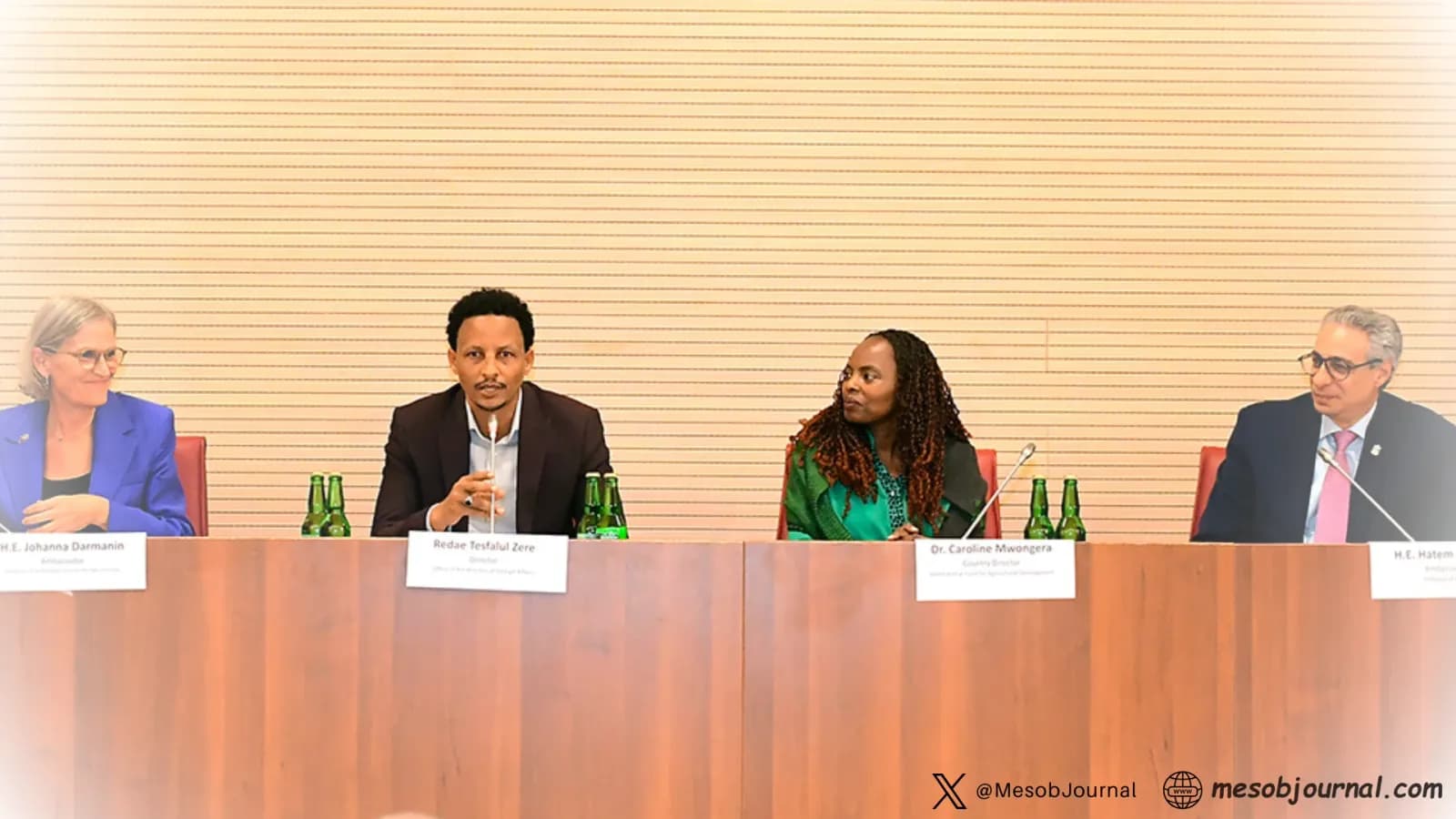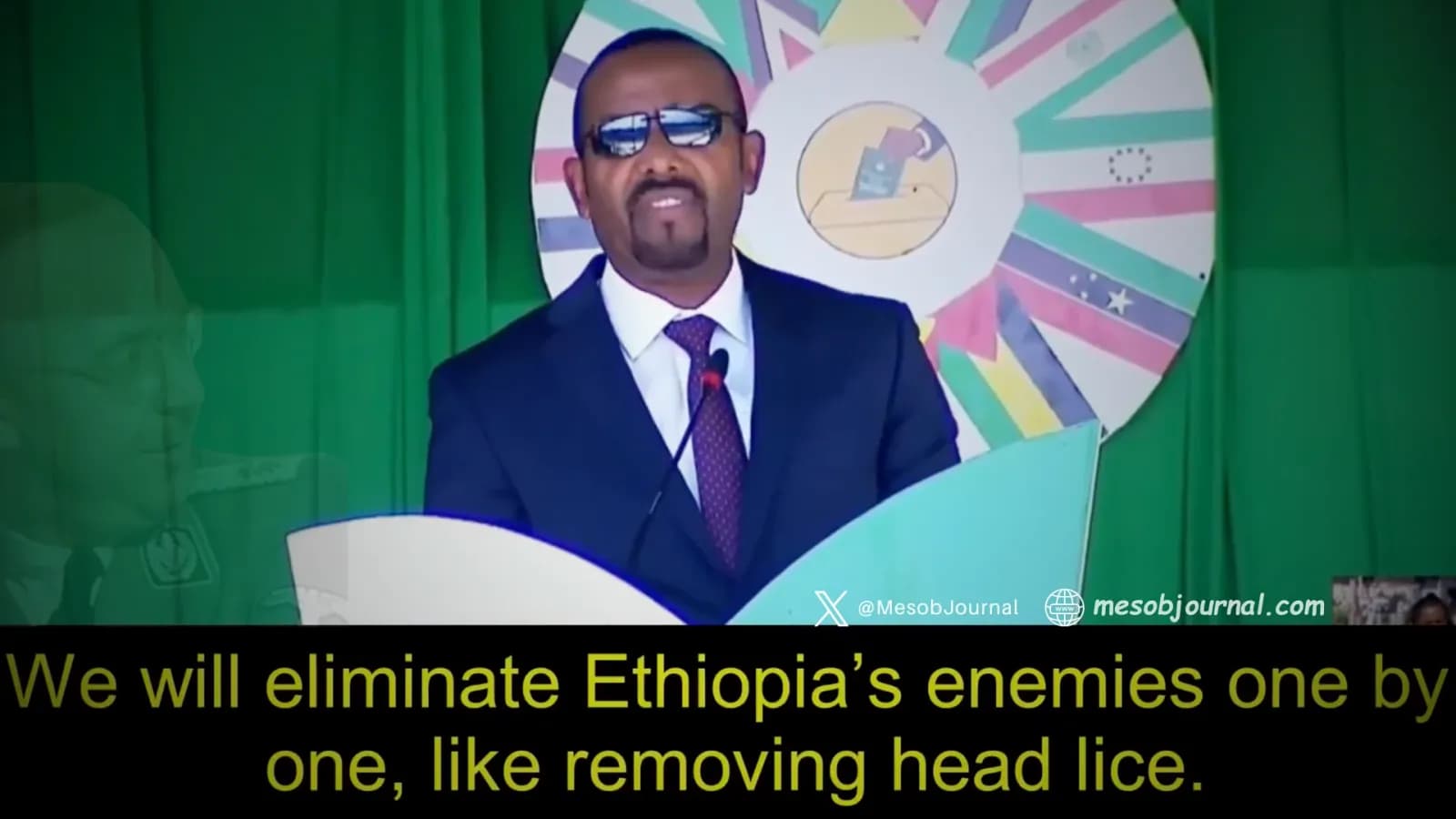Eritrea and the UN: A New Language of Partnership

Why the UN’s approach in Asmara may be the most important development story Africa isn’t talking about.
The hall at the National Confederation of Eritrean Workers was full, alive with an energy I hadn’t felt before at any event hosted by international partners in Asmara.
The event, titled “Self-Reliance and Partnership: The Eritrean Experience and Its Global Relevance,” was organized by the UN in Eritrea as part of this year’s UN Day celebrations. At first glance, it looked like just another panel. But as the discussion unfolded, it became clear that this was more than that.
The UN had not come to explain Eritrea but to create space for others to listen. For once, it felt like a misunderstood story was finally being told by those who had lived it. That, to me, was radical.
Too often, international conversations about Africa are held in rooms where Africans are spoken for, summarized, or corrected. Eritrea, in particular, has lived for years under layers of misrepresentation; its choices questioned, its policies measured against foreign blueprints, and its development path scattered with political, economic, and social mines.
Yet here, on this breezy Asmara afternoon, the UN Country Team gave the stage to a diverse group of panelists — a multilateral development representative, a bilateral partner, and a neighboring country — to share their views and experiences on Eritrea and its policy of self-reliance.
At its heart, however, the event centered Eritrea’s own voice through the Eritrean panelist, Redae Tesfalul Zere, who apparently wrote his master’s research on aid and self-reliance. Redae described how for Eritrea self-reliance was born during the liberation struggle, when both Cold War powers backed the other side. “Eritrea does not reject foreign assistance,” Redae then explained. “It insists that it be genuine, that it complements national priorities. Aid should be time-bound. It should not create structural dependency.”
He paused before adding something that stayed with me long after the panel ended: “Development partners should work with her, not for her.”
Listening, I thought about how this idea — so clear when voiced by Eritreans themselves — has been caricatured for decades. In donor reports, “self-reliance” was often treated as a polite word for Eritrean stubbornness, arrogance, exceptionalism, or isolationism. Yet what Eritreans have always insisted on, at great cost, is the right to define their own path to development.
As Redae tried to explain, however, self-reliance is not a rejection of partnership. It is a rejection of the kind of partnership that demands hierarchy, dependence, and quiet submission.
In this context, we must also remember that Eritrea’s approach is not an anomaly. It is an echo. Across post-independence Africa, similar stories abound. From Tanzania’s ujamaa to Ghana’s early experiments in self-determination, self-reliant development once defined a generation. What changed was not the idea but politics. The Cold War punished those who stood alone and rewarded those who did not.
And yet, here was Eritrea, unyielding and still standing. It reminded the continent what that confidence once looked like. That same proud spirit seemed to echo through the room that evening.
The discussion then moved from history to practice, from philosophy to what genuine partnership might look like in real terms.
Dr. Caroline Mwongera, the UN Country Director for IFAD, said something that, to many in the room, felt almost radical in its simplicity. “It’s not a question of self-reliance or multilateral cooperation,” she explained. “They are mutually reinforcing.” She went on to describe how the UN’s role in Eritrea is not to set the agenda but to “align with the government’s priorities, provide technology and innovation, and complement what already exists.”
It was refreshing to hear, and, if we are honest, unusual. Because that is not how development partners have often operated in Africa. Too often, the word partnership has been used to disguise imbalance. In Ghana, donor-driven reforms in the 1990s dictated how and where public funds could be spent, often prioritizing fiscal targets over social investment. In Malawi, agricultural subsidies were once dismantled under external pressure, only to be reinstated later after devastating food shortages. In Tanzania, community-based programs have frequently been reshaped to fit donor reporting templates rather than local realities. And in places like the DRC or South Sudan, international missions have poured in with good intentions but left behind a patchwork of fragmented initiatives with little local ownership.
Across the continent, aid has too often come tied to a belief that Africans must be guided toward progress, not trusted to define it.
That is why what is happening in Eritrea feels different.
The UN Country Team, under the leadership of Nahla Valji, is charting a path that breaks from old habits. Her approach has introduced a tone of humility, listening, and respect that many institutions speak of but rarely embody. What she and her team are building in Eritrea is not just a country model; it’s a quiet blueprint for how the UN can engage across Africa — grounded in equality rather than hierarchy.
By creating a UN platform for Eritreans to define their own priorities and perspectives, Nahla and her team are proving that cooperation works best when it begins with respect and trust instead of control. It is an approach that deserves to be amplified and replicated across all UN Country Teams on the continent.
If more partners embraced this posture — to listen before prescribing, to collaborate instead of correct — Africa’s relationship with development could finally begin to transform in real, lasting ways.
As the discussion deepened, the room felt charged. You could sense people thinking, weighing old assumptions against what they were hearing. Perhaps it was that spirit of humility of the panel that encouraged honesty from the audience.
When the moderator invited reflections, Dr. Eden Tareke, a prominent Eritrean researcher in biochemistry and toxicology, stood up and asked why it seems like the aid industry continues to thrive on the very problems it was meant to end, instead of designing its own redundancy. Her words hung in the air.
Her question was more than a critique of aid. It was a call to rethink what development really means and what it ought to look like. What if progress were measured not by how much assistance a country receives, but by what it does with what it receives, and perhaps more importantly, by how much it can do without it? Maybe what she meant was that real change threatens too many comfortable arrangements, that dependency is not an accident but a system carefully maintained.
Other participants spoke candidly about the trade-offs and difficulties of building from within. But they also reminded us that resilience built on national ownership lasts longer than progress funded by external approval.
Imagine a future where international institutions come not to teach, but to learn; not to design, but to co-create. Imagine if we measured progress not by how many projects are launched, but by how many are led and sustained by local hands.
Eritrea’s story offers a glimpse of that future. It shows that self-reliance and partnership are not opposites, but allies, and that dignity and cooperation can coexist if we start from equality, not hierarchy.
As I left the hall that evening, the air outside felt charged with possibility. For the first time in a long while, I thought: maybe the world is beginning to listen. And maybe, if that continues, Africa will not just be spoken about. It will be heard.
Related stories

A Brief Understanding of South Sudan: Not a Forgotten Conflict but a Neglected One
South Sudan, the world's youngest nation, is teetering on the brink of a devastating return to full-scale war. While international attention is often diverted, the country is experiencing a severe political, humanitarian, and security crisis, fuelled by a collapsing peace deal, v

When Maps Become Messages: Ethiopia’s Dangerous Normalization of Territorial Claims
There are moments in diplomacy when silence is louder than words. And there are moments when a picture—deliberately chosen, officially circulated—does more damage than a thousand speeches. The map displayed this week in a video released by Ethiopia’s Prime Minister’s Office belon

When the Mask Slips: Abiy Ahmed’s “Lice” Remark and the Language of Future Atrocities
There are moments in political life when a leader inadvertently reveals the architecture of his worldview. Sometimes it comes dressed in eloquence; sometimes it leaks out through a metaphor so coarse, so naked in intent, that it cannot be brushed off as a slip of the tongue. Abiy

The AU’s Ethiopia Problem: How a Continental Body Became a Stage for Manufactured Peace
For anyone who has followed the AU’s behavior over the last two decades, the events of December 4 in Ethiopia were not shocking. They were simply the latest chapter in a long, predictable pattern: the African Union being instrumentalized by whichever Ethiopian government happens

